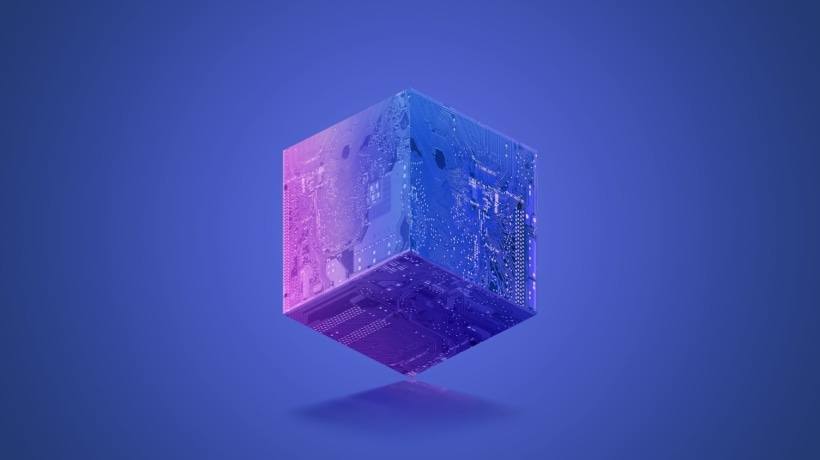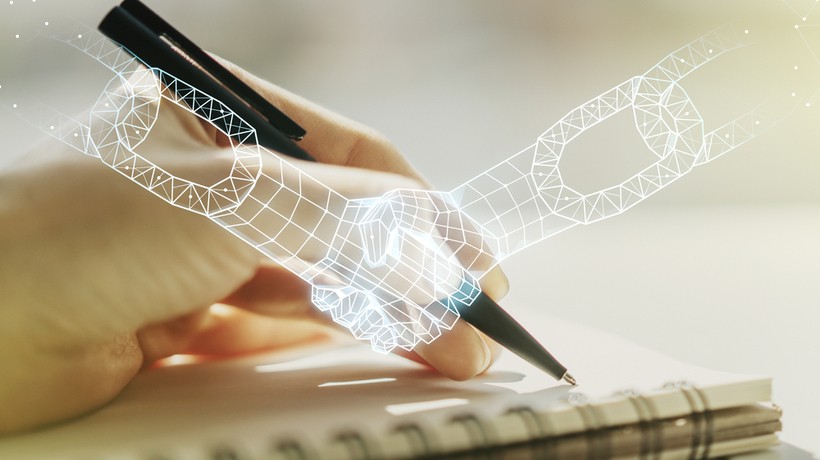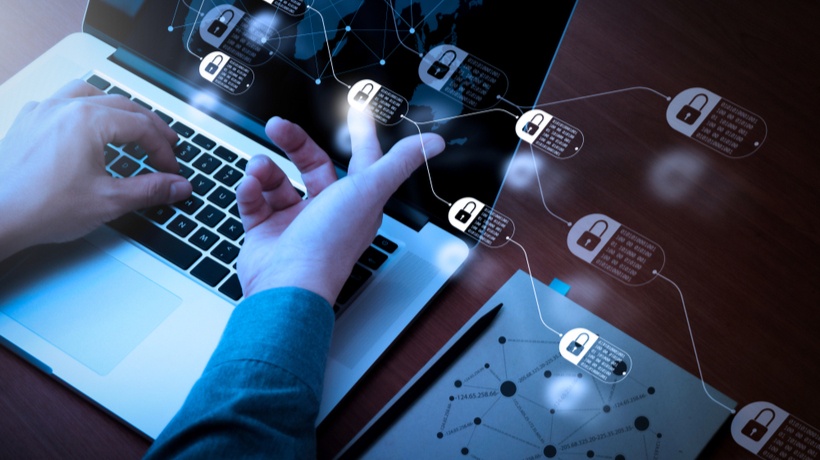Blockchain Application Development For eLearning
Blockchain technology has the potential to significantly impact the eLearning industry in several ways. Read about them below.
1. Enhanced Security
Blockchain's decentralized and transparent nature can improve the security of eLearning platforms. It can ensure secure storage and verification of learner data, certificates, and credentials, reducing the risk of fraud and data breaches.
2. Authentication And Trust
Blockchain can enable reliable verification of learners' skills and achievements through decentralized digital identity solutions. This ensures that credentials and certificates are tamperproof and easily verifiable across institutions and employers, increasing trust in online learning.
3. P2P Learning And Content Sharing
Blockchain can facilitate peer-to-peer learning by creating platforms where learners can directly share knowledge, content, and resources without middlemen. This decentralized approach encourages collaboration, widens access to quality educational materials, and reduces costs.
4. Micropayments And Copyright Protection
With blockchain, learning platforms can explore micropayment models, where learners pay for specific modules, lessons, or assessments. This can support the creation of high-quality educational content and protect the copyrights of creators through smart contracts and timestamping.
5. Transparent Recordkeeping
Blockchain's distributed ledger technology can securely store and track educational records, including completion certificates, degrees, and qualifications. This ensures a transparent recordkeeping system that is resistant to alteration and enables employers to verify credentials easily.
6. Data Analytics And Personalization
By securely collecting and analyzing learner data on the blockchain, learning platforms can gain insights into students' behaviors, preferences, and learning patterns. This data can be used to personalize learning experiences, recommend relevant content, and improve overall learning outcomes.
Blockchain Applications In eLearning
Blockchain technology has the potential to revolutionize the field of learning by enhancing trust, security, and efficiency. One application of blockchain in eLearning is in credential verification. With blockchain, educational institutions can issue digital certificates or degrees that are securely recorded on the blockchain. This eliminates the need for manual verification processes, making it easier for employers or other educational institutions to verify the authenticity of a credential.
Additionally, this can empower learners by giving them ownership and control over their educational records. Students can have a digital wallet on the blockchain that stores their achievements, certificates, or skills. This provides a transparent and immutable record of their educational journey, allowing them to easily share their credentials with potential employers or academic institutions.
Another app development of blockchain in eLearning is in content sharing and copyright protection. Blockchain can establish a decentralized platform where educators can securely share educational content while ensuring proper attribution and copyright protection. This can foster collaboration and innovation within the learning community while also providing creators with fair compensation for their work.
The Effective Combination Of Blockchain And eLearning
The powerful combination of blockchain and eLearning has the potential to revolutionize the education industry. Blockchain technology, known for its decentralized and secure nature, can enhance the transparency, efficiency, and trustworthiness of eLearning platforms.
By leveraging blockchain, eLearning platforms can provide tamperproof records of student achievements, certifications, and qualifications. These records are stored on a distributed ledger, ensuring they cannot be altered or falsified. This gives employers and educational institutions confidence in the authenticity of an individual's educational accomplishments, creating a more reliable and verifiable system.
Additionally, it can enable micropayments and incentivize learners through tokenized rewards, creating a more engaging and motivating learning environment. Learners can receive tokens or digital assets for completing courses, reaching milestones, or demonstrating their knowledge in specific areas. These rewards can be used for further education, exchanged for other goods and services, or even stored as an investment.
Moreover, blockchain can facilitate peer-to-peer interactions within eLearning platforms. By eliminating intermediaries, blockchain enables direct communication, collaboration, and knowledge sharing between learners and educators. This decentralized approach encourages a sense of community and empowerment, fostering a more inclusive and accessible eLearning ecosystem.
Furthermore, the immutability and transparency of blockchain can address issues such as plagiarism and intellectual property theft. Smart contracts can be utilized to secure copyrights and ensure fair compensation for content creators, encouraging the production of high-quality educational materials.
Future Of Blockchain In The Education Industry
The future of blockchain in education holds a lot of potential. Blockchain technology can offer various benefits, such as increased security, improved data management, and enhanced academic credential verification. Here are a few possible applications:
- Secure recordkeeping – Blockchain provides an immutable and decentralized ledger system that can securely store educational records like degrees, certifications, and diplomas. This ensures that the records cannot be tampered with or falsified.
- Credential verification – With blockchain, educational institutions can issue digital certificates and diplomas that can be easily verified by employers or other educational institutions.
- Transparent assessments – Blockchain can facilitate transparent and verifiable assessments by recording time-stamped data, assessor identities, and grading criteria. This enhances the trust and credibility of the evaluation process.
- Peer-to-peer credential sharing – Blockchain can allow learners to have ownership and control over their educational records. They can share their verified credentials with potential employers or other institutions securely and directly, eliminating the need for intermediaries.
- Micro-credentialing and lifelong learning – Blockchain can enable the creation and recognition of micro-credentials, allowing individuals to showcase specific skills and achievements. This supports lifelong learning by providing a more granular and flexible approach to education and career advancement.
It is worth noting that while the potential is significant, widespread adoption of blockchain in education may still require overcoming certain challenges, including technical implementation barriers, establishment of industry standards, and addressing privacy concerns. Nonetheless, the future of blockchain in education looks promising for revolutionizing recordkeeping, credential verification, and learning opportunities.









